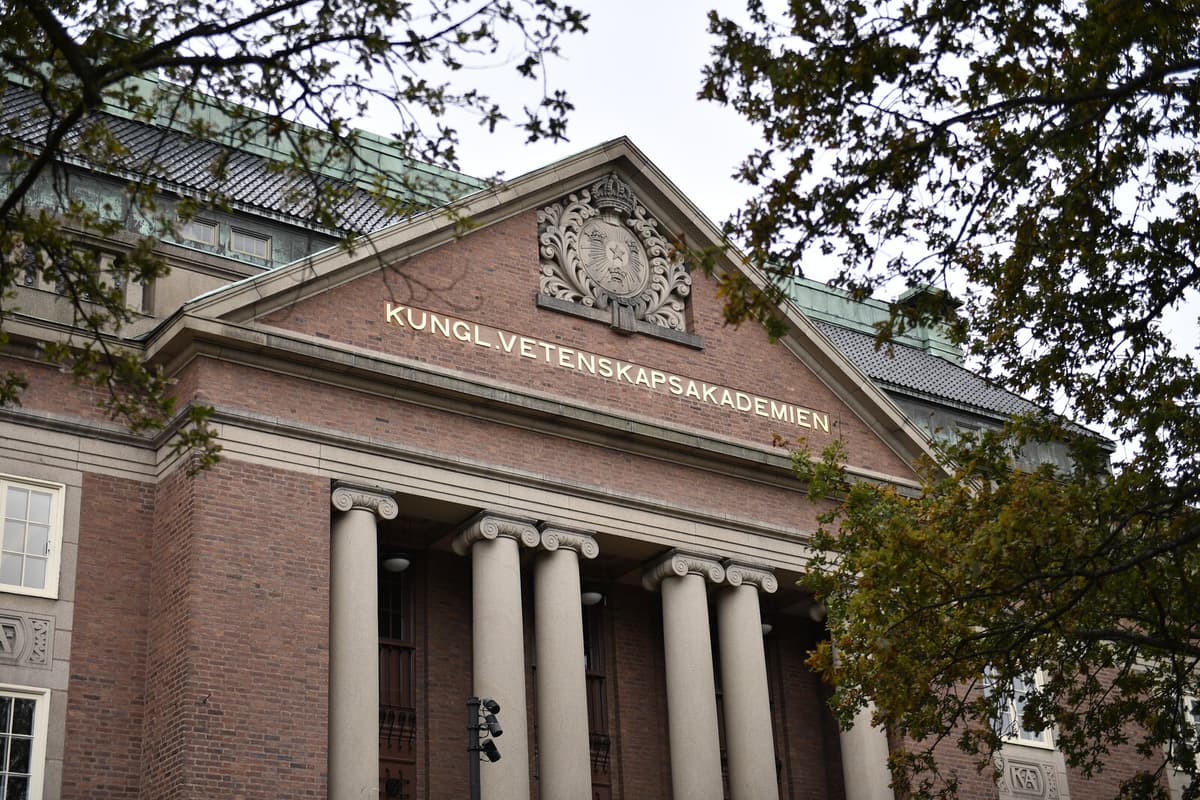Kristina Hedfalk, professor of biochemistry at the University of Gothenburg, refrains from guessing names, but points to a research field at the interface between chemistry and medicine where significant progress has been made in recent years: antibody treatment of neurological diseases, primarily MS.
When these treatments work, they are incredibly powerful. It becomes a very powerful braking effect, she says.
What may speak against this being awarded the prize this year is that antibody treatment for cancer was awarded the Nobel Prize in Medicine in 2018.
Protein Structure
The former Nobel laureate in chemistry, German Benjamin List, believes that one of the researchers at AlphaFold may be awarded the prize. AlphaFold has, with the help of AI, produced millions of 3D structures of proteins, one of life's building blocks.
They have essentially cracked one of medicine's, biology's, and chemistry's holy grails, how protein structure is formed. Proteins are extremely important for all aspects of life, and the structure is naturally extremely relevant in that respect, he says.
Other areas and researchers mentioned in the speculation are Omar M Yaghi, professor at UC Berkeley in the US, where he and his research team have developed metal-organic frameworks (MOFs). The porous material can be used, among other things, to store toxic gases in the electronics industry. Experiments are also being conducted with MOFs that capture water from the air, even in dry desert areas.
Optogenetics
Other names mentioned are Chi-Huey Wong, American biochemist and researcher in glycobiology, and Karl Deisseroth, active at Stanford University in the US, where his laboratory has developed optogenetics – a method where selected nerve cells are turned on and off within thousandths of a second without affecting other cells. The method is used, among other things, to study epilepsy.
Which researcher or researchers the Royal Academy of Sciences will award this year will be presented at the earliest at 11.45 am tomorrow. The safest guess is that everything has been done to avoid repeating last year's blunder, when a press release with the winners' names was released in the morning.
2023: Moungi G Bawendi, USA, Louis E Brus, USA, and Alexei E Ekimov, USA.
For the discovery and development of quantum dots, which light up computer and TV screens and refine the light in certain LED lamps. Also used to map biological tissue.
2022: Carolyn Bertozzi, USA, Morten Meldal, Denmark, and Barry Sharpless, USA.
For the development of click chemistry, a method of building molecules by letting them snap into each other. The method has contributed to the development of more targeted cancer drugs.
2021: Benjamin List, Germany, and David MacMillan, USA.
For the development of asymmetric organocatalysis, a tool for building molecules. Has had a major impact on pharmaceutical research.
Source: KVA






